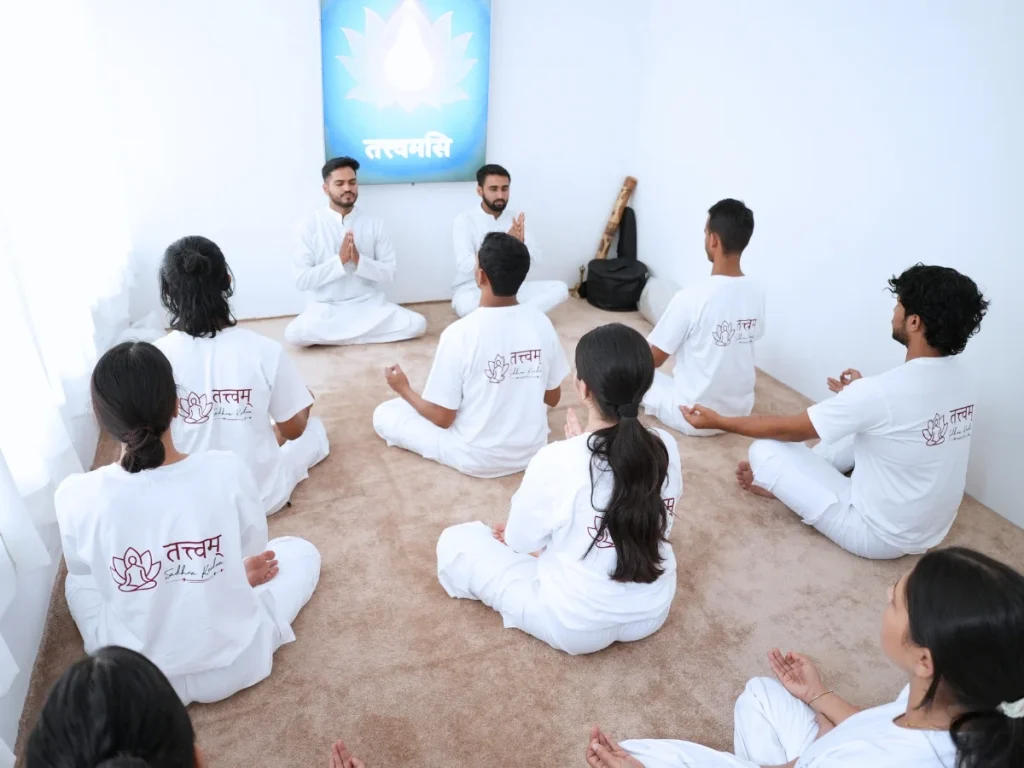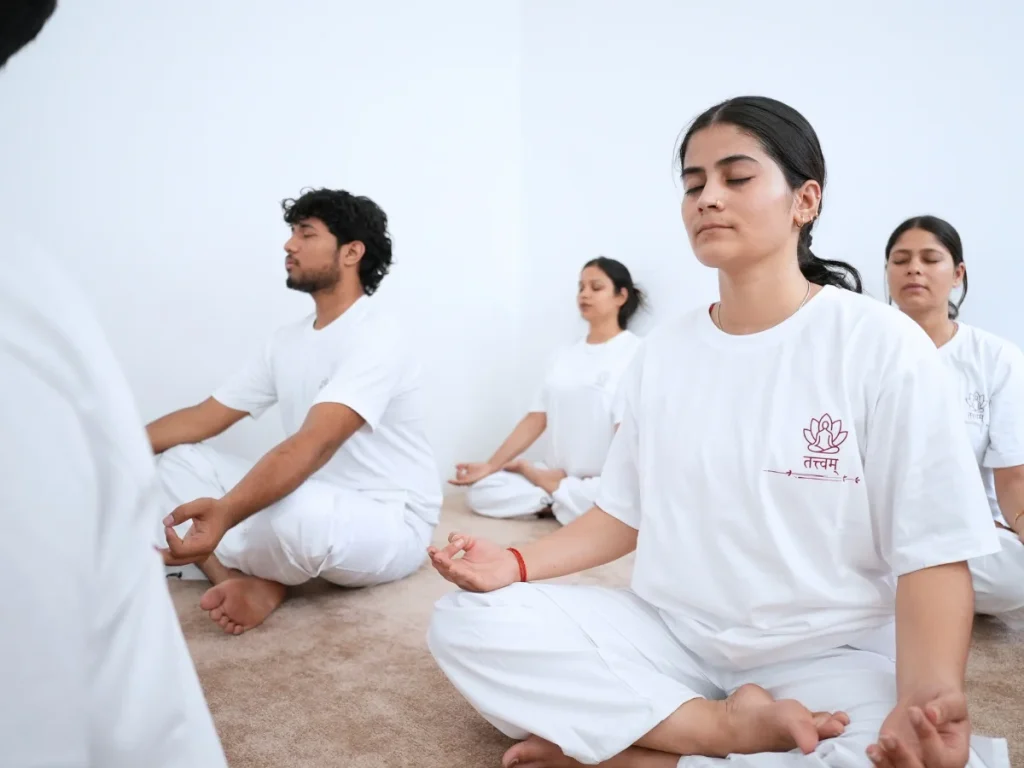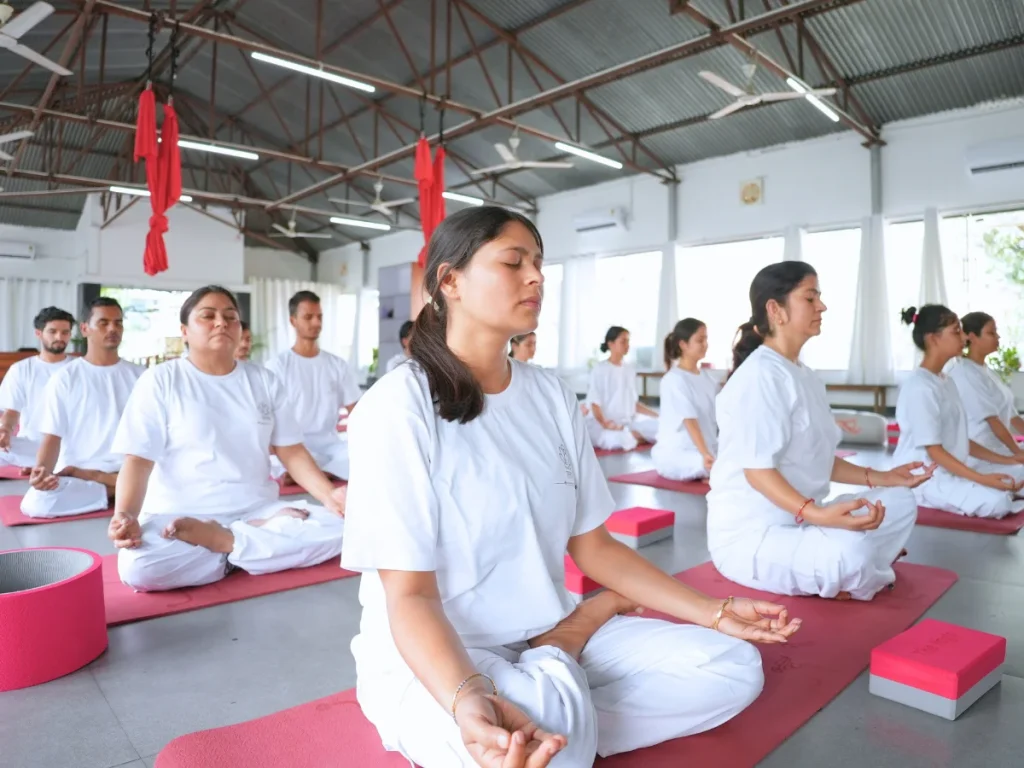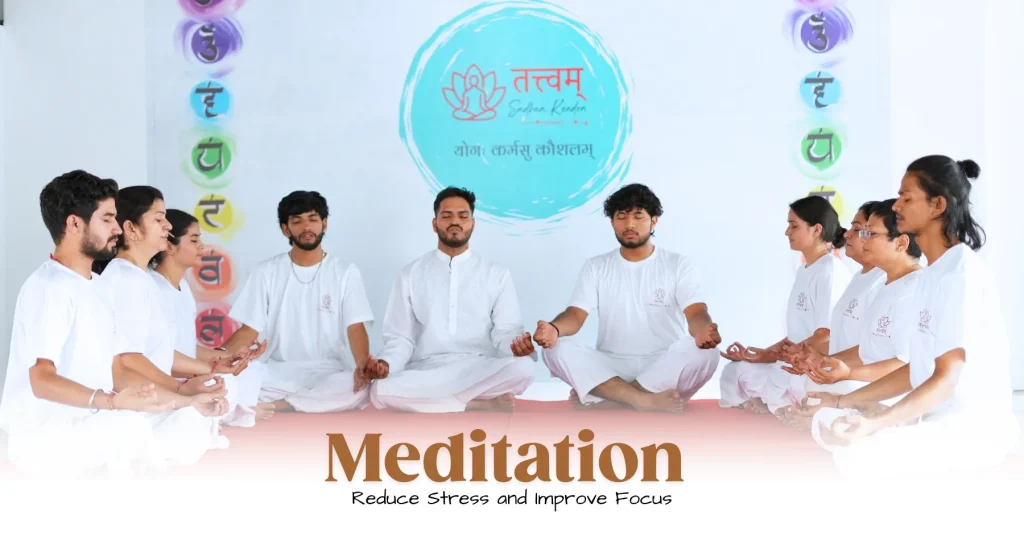In today’s fast-moving world, our minds are constantly busy.
We think, plan, and worry all at once — often leaving little space for calm.
Meditation offers a simple yet powerful way to slow down, find balance, and reconnect with the present moment.
What is Meditation
Meditation is the practice of training the mind to stay still and aware.
It is not about stopping thoughts but learning to observe them without reacting.
By sitting quietly and focusing on the breath or a sound, you allow your mind to relax naturally.
The Connection Between Meditation and Stress

When we are stressed, the body releases cortisol — a hormone linked to anxiety and restlessness.
Meditation helps lower cortisol levels, which brings a sense of calm and stability.
As you breathe slowly and stay focused, the heart rate reduces, muscles relax, and the mind begins to settle.
The Science Behind Meditation
Modern research shows that regular meditation changes the way our brain works.
It strengthens the prefrontal cortex — the part responsible for focus, decision-making, and emotional control.
At the same time, it reduces activity in the amygdala, the area that triggers fear and stress responses.
This means meditation helps you respond to challenges calmly instead of reacting impulsively.
Meditation trains your attention like exercise trains your muscles.
Each time your mind wanders and you bring it back, you are building concentration.
Over time, this practice improves memory, clarity, and productivity.
Even 10 minutes of daily meditation can make you more present in your work, studies, and relationships.
Different Ways to Meditate

There are many ways to meditate, and you can choose the one that feels right for you.
- Breath Awareness: Focus on your natural breathing pattern.
- Guided Meditation: Follow a voice that helps you relax and stay focused.
- Mantra Meditation: Repeat a calming word or sound like “Om” to anchor your attention.
- Mindfulness Meditation: Observe your thoughts and sensations without judgment.
Each method helps reduce stress by keeping the mind anchored in the present.
How to Begin Your Practice
Start small. Even a few minutes daily can bring change.
Find a quiet space, sit comfortably, and close your eyes.
Focus on your breathing — inhale slowly and exhale deeply.
If your mind drifts, gently bring your focus back to the breath.
With time, you’ll notice more calmness and mental clarity throughout the day.

“At Tattvam Sadhna Kendra, we see meditation as the bridge between the outer world and the inner self. Many students come to us saying they can’t stop their thoughts. But after consistent practice, they realize that the goal isn’t to control the mind — it’s to understand it.
Just 10 minutes of daily meditation can change how you handle challenges. You’ll notice fewer emotional reactions and more patience. Meditation doesn’t take time; it gives time — by helping you live each moment fully.”
Meditation is one of the simplest ways to reduce stress and improve focus.
It doesn’t require special tools or a perfect environment — only your willingness to pause.
When practiced daily, it helps you stay calm in chaos, think clearly, and feel more connected with yourself.
If you wish to begin your meditation journey, join the guided sessions at Tattvam Sadhna Kendra, where stillness becomes strength and awareness becomes peace.


